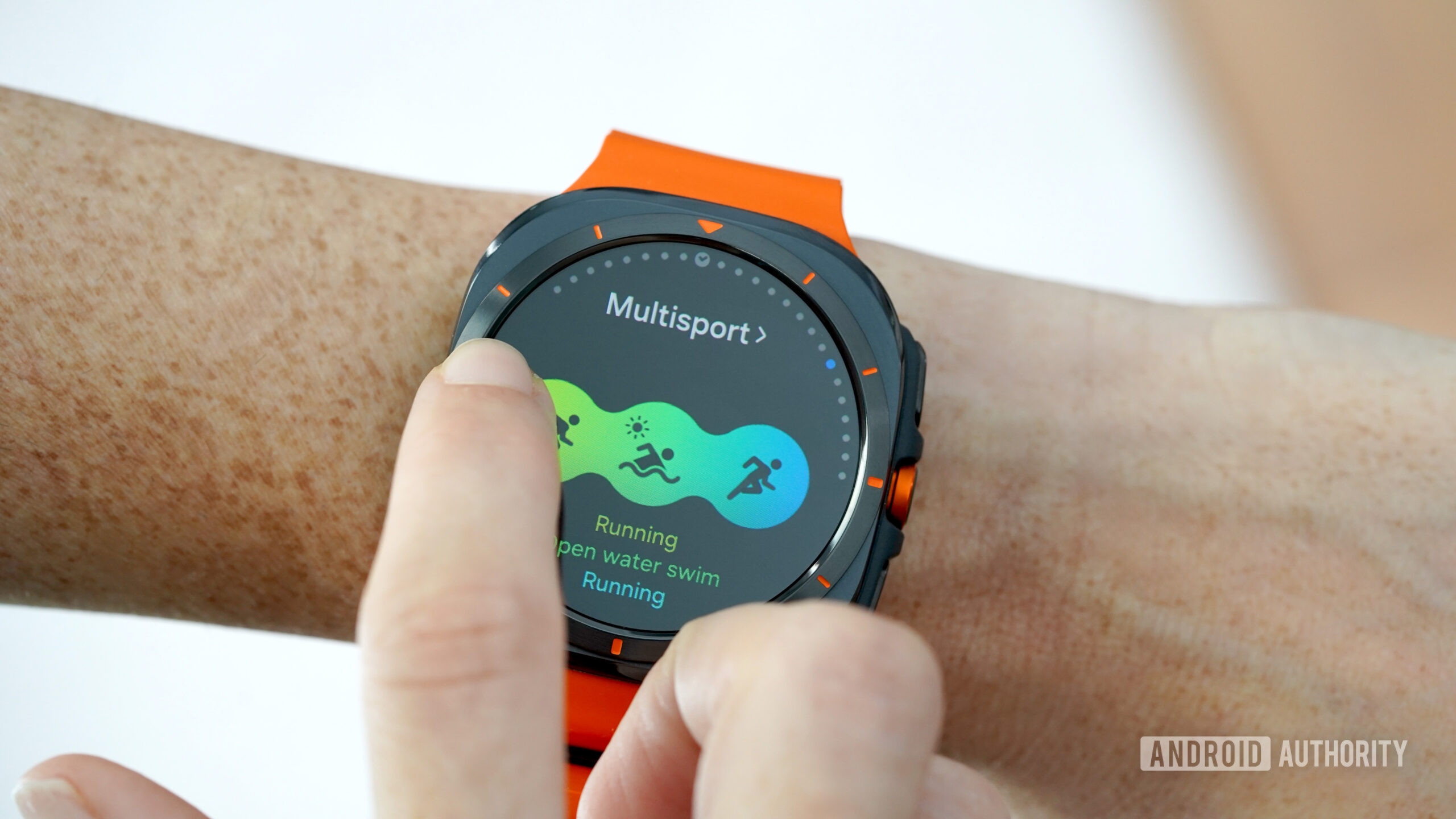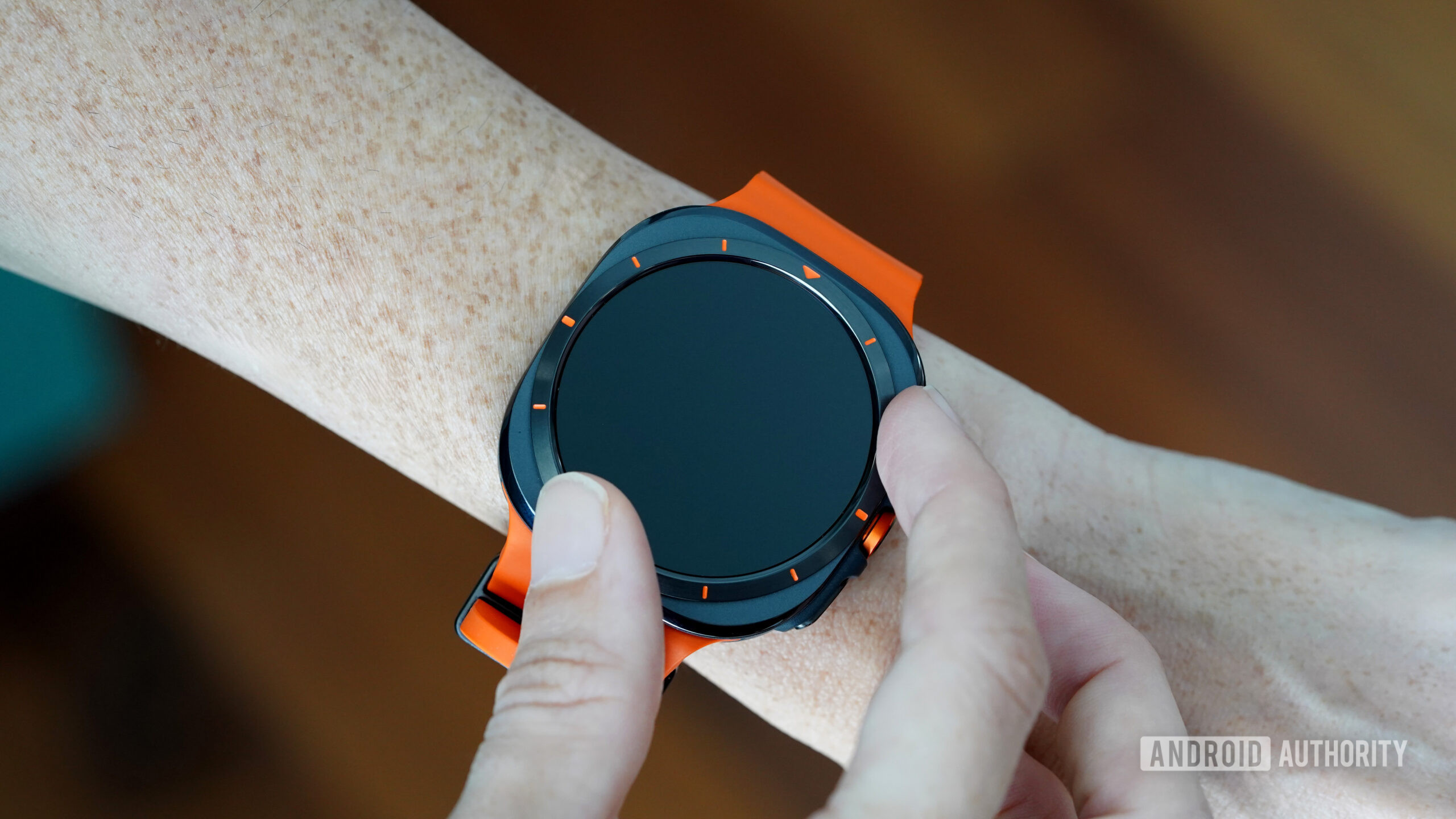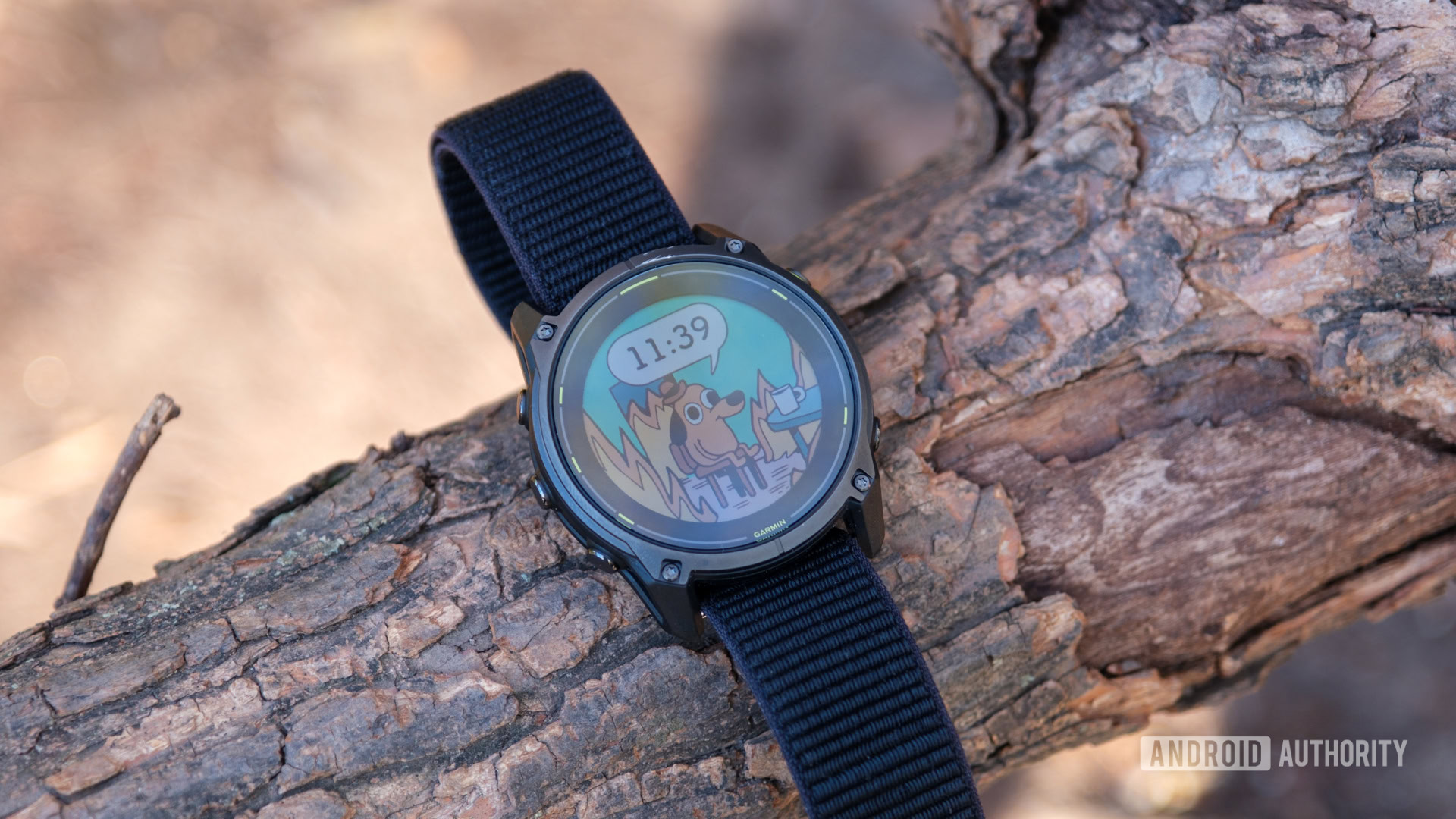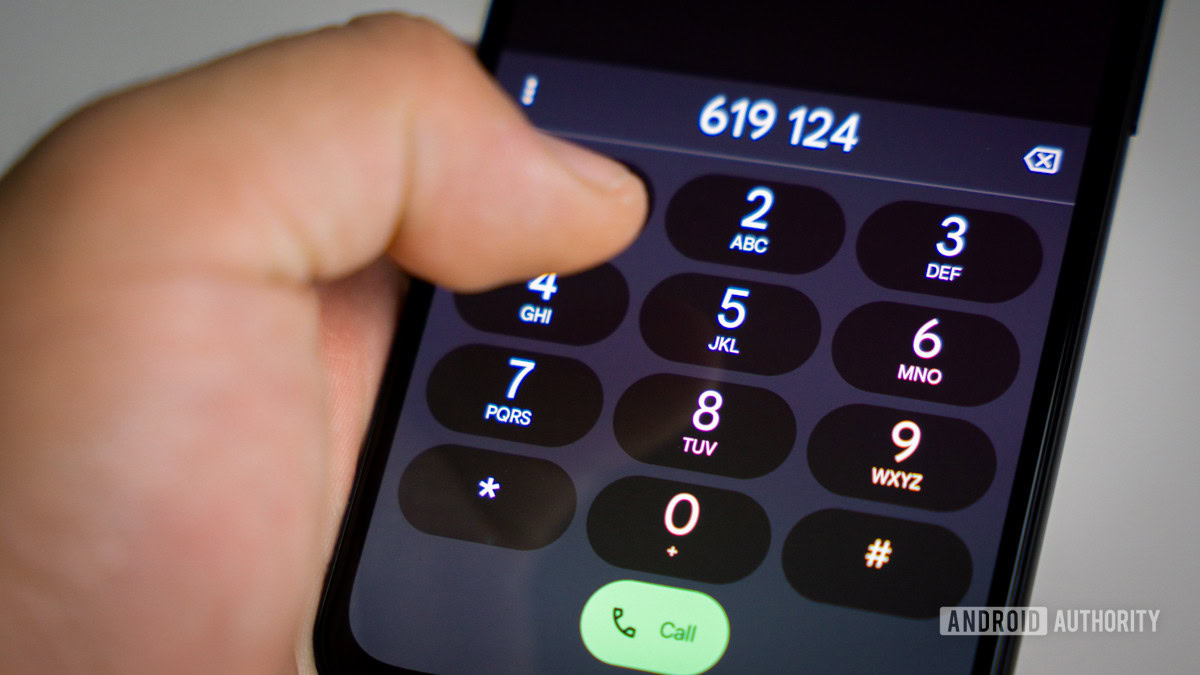Earlier this month, Samsung launched the Galaxy Watch Ultra and immediately got flack for its familiar look (read: the Apple Watch Ultra must feel flattered). Whether you personally buy into the take that Samsung copied Apple or not, there’s no question the company omitted its most unique and beloved feature: the rotating bezel. I’ve been testing the smartwatch for a week now, and I really miss the bezel’s look and functionality. I’m also convinced it would have helped put the Apple-rip-off rumors to rest.
Do you wish the Samsung Galaxy Watch Ultra featured a rotating bezel?
0 votes
The bezel of the ball
Samsung first debuted the rotating bezel on its Gear S2 back in 2015. Today, it’s used to zip through Wear OS UI on last year’s Galaxy Watch Classic 6. The design feature is largely associated with the company’s higher-end, formal models, given its ability to refine the sporty look of the base Galaxy Watch. It’s also typically accompanied by stronger build materials and durability specs, distinguishing Classic models as deluxe offerings. I think this pattern would’ve made the bezel a perfect fit for the Ultra.
Samsung's rotating bezel could've delivered the exact type of refinement currently missing from the new Ultra.
To be clear, I don’t think anyone is calling the new Ultra especially sleek. The hybrid circle-square shape is confusing enough to give kindergarteners pause, and the cushion-style case is a particularly poor use of wrist real estate. Throw in its orange detailing, and you have yourself a strange device indeed. To this end, a rotating bezel could have helped reign in the Galaxy Watch Ultra and align it with Samsung’s established aesthetics. With its raised bezel in contrasting tones, the design already lends itself to the feature; it’s practically begging me to spin it. Instead, the stationary alternative looks cheesy and emphasizes what can only be described as the result of someone’s indecisiveness about circular vs square watches.
Function as well as form

Kaitlyn Cimino / Android Authority
There is also a ton of lost functionality to lament. The benefits of Samsung’s rotating bezel are truly multi-faceted. First, it allows users to avoid excessively swiping for navigation and gunking up their touchscreens with fingerprints. I like a microfiber cloth as much as the next person, but I don’t carry one in my pocket at all times like an old man’s hankie.
A physical bezel is also more responsive than a digital one, especially while fitness tracking. Anyone who has finished a sweaty workout and then struggled to navigate their touchscreen during cool-down knows what I mean. I live for immediate access to the texts I missed while fighting for my life on the stair machine. The Ultra also claims to be a companion for adventurers, but most outdoor folks are very friendly with SPF sunscreen. A rotating bezel is much easier to twist than a digital version once greasy fingers are involved, not to mention gloved ones. Plus, the tactile experience of spinning through tiles is about as close to ASMR as any wearable gets.
Compared to a digital one, a physical bezel is easier to use in the face of sweat, lotions, or gloved hands.
Besides cruising through the device’s UI, Samsung’s rotating bezel also offers direct functionality for certain features. A clockwise turn dismisses any unwanted phone call or an ill-conceived alarm. A counter-clockwise spin pipes down the playlist in your headphones when someone tries to talk to you at the gym (or you can turn up the music if you’re feeling antisocial). The rotating bezel makes these actions quick and accessible, again, regardless of the state of your fingers. Samsung spent years perfecting this mechanical gesture, only to deprive its highest-end smartwatch of it.
A missed opportunity

Kaitlyn Cimino / Android Authority
All in all, Samsung’s decision to leave off one of its most popular stand-out features feels to me like a missed opportunity. First, it could have differentiated the device from the Apple Watch Ultra and helped justify the circular watch face. It could’ve also appealed to the faithful rotating bezel enthusiasts who were quite riled after Samsung dropped the bezel from its Galaxy Watch 5 lineup. Most importantly, though, it’s a very practical addition to any smartwatch and one I really value as unique to Samsung’s wearable line-up. At the price the Ultra demands, I would have liked to see Samsung offer its absolute best, and that means a physical bezel, too.







 English (US) ·
English (US) ·